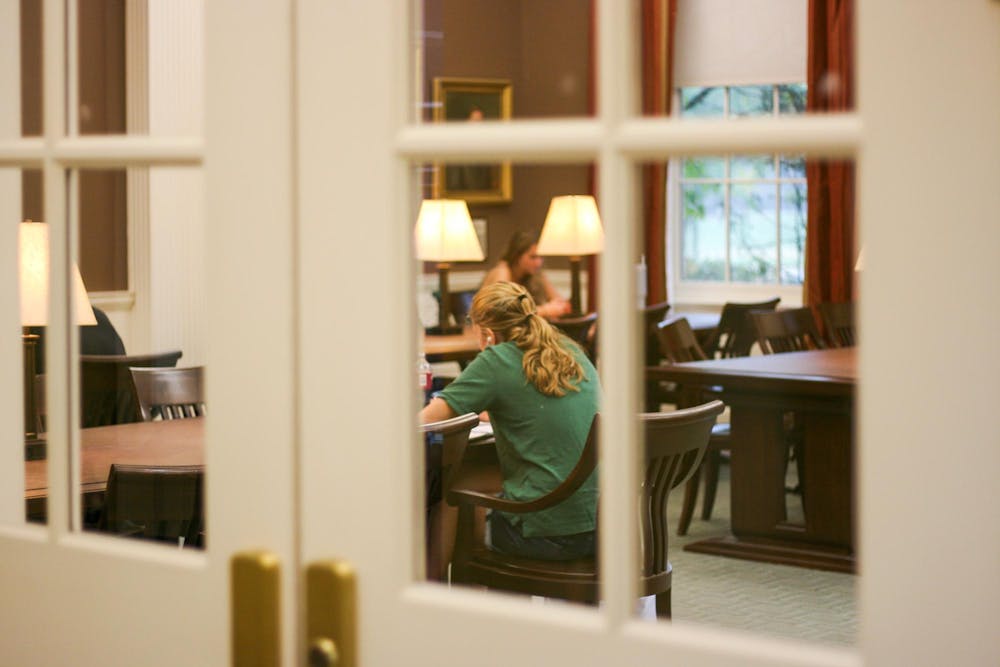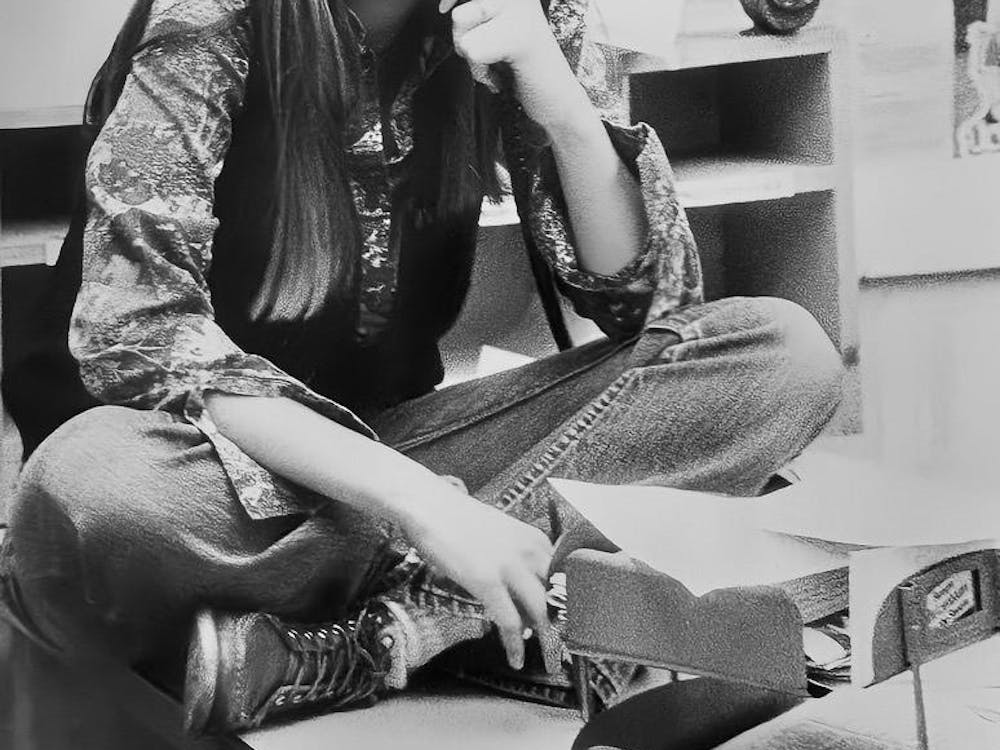It seems that Miami University is a pro at procrastinating renovations. Walking around the Farmer School of Business, the McVey Data Center or the Clinical Health Sciences and Wellness Facility, one might question the validity of this statement. From the outside looking in, Miami appears to be a school with a homey, rustic exterior with an interior that reflects the pride that the red bricks bring to our school.
This, however, is not the case for many buildings in the humanities. In Upham Hall, one might expect to see something that mirrors the beauty of the outside; however, walking through the doors underneath the famed arch is like walking into a time machine that transports students back to 1965. A similar sensation hits when opening the doors to Harrison Hall, Irvin Hall or even King Library.
Why is this? Perhaps it’s a reaction to the excruciatingly low enrollment in humanities; in fact, in 2022, humanities only accounted for 8.8% of bachelor’s degrees nationwide, according to the American Academy of Arts and Sciences.
In recent years, it feels as though the world is shifting its view on higher education. Universities are meant to be places of learning, where students become more adaptable to the ever-changing world. Now, it feels as though universities are viewed as job factories, where students enter for the sole purpose of employment. While the acquisition of a job after graduation is a huge factor for attending college, oftentimes it can cloud passion.
Perpetuating this misconstrued view of college as purely a means to an end is Senate Bill 1 (S.B. 1), a bill that was passed earlier this year that eradicates diversity, equity and inclusion (DEI) programs and requires that instructors teach “both sides of history.”
Seemingly a blatant attack on higher education, have we lost sight of what a true education is about? With the Farmer School of Business being Miami’s crown jewel, it can be argued that Miami is just doing its job to keep up with demand; however, the College of Arts and Sciences (CAS) often does not receive the same attempt at investment.
Granted, Farmer does receive generous donations and is supplemented by the surcharge foisted upon students; however, I could also look at this extra cost as a window into national investment into business with simultaneous discouragement of the humanities.
It is not fair to blame the lack of investment to other areas of study purely on Miami. Across the board, less and less students choose humanities majors that are not perceived to filter directly into a job, while business enrollment is on the rise.
Let me make it clear: I respect business schools and everyone who attends them. Business has a higher demand and therefore it makes sense that it has its own offerings. I know many people in Farmer who are passionate about their major; however, it is important to recognize the differences in the environment.
Taking a stroll into any of the humanities buildings on the Academic quad versus Farmer or any STEM building is sure to open the eyes of any student, and it will definitely disrupt the veil-like effect that the prominent red brick buildings emanate.
Grace Farrell is a sophomore double-majoring in history and international studies. She is a writer for The Student and the secretary for IGNITE Women in Politics.




